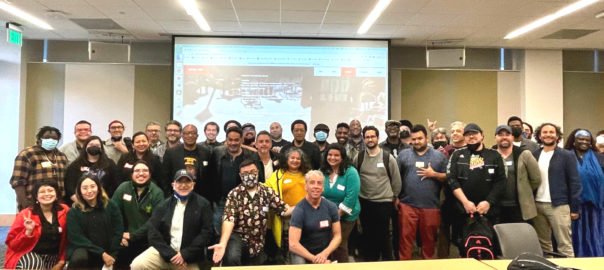Introduction
Ph.D. Candidate Anthony Ramirez and joey lopez phd were able to attend the BIPOC POP SYMPOSIUM on March 10th and 11th of 2022. Collaborators of LatinX popular culture, such as their recent article published here in blog format about LatinX culture & video gaming and other projects like Showing Trajectories. We have a passion for experiencing new forms of academic engagement and the BIPOC POP SYMPOSIUM proved to be a form of engagement that we reveled in.
We both wrote our own personal reflections of the Symposium which can be read here and here. But what this article is really about is a deep dive and look into the community that was built through this event’s attendees and their diverse backgrounds and willingness to share their works and perspectives in such a facilitative space. Through this experience it prompted Anthony and joey to ponder the following questions?
Questions:
- How did this event come together?
- How did the physical space play a role in creating “space” for conversations and discourse?
- How did academics receive the experience vs professionals?
- What did Dr. Aldama have in store?
- Where is this situated in Academia?
- Anthony and joey both purchased art from the market place, how do we explore this?
Observations:
- We saw impactful personal testimony as academics and professionals
- People were discussing their streaming show opportunities, as well as publishing in general
- It felt like an academic conference and comic-con event.
- The market place offered a unique experience for academics in that we typically do not directly interact with the authors of the material at an academic conference.
- The people in attendance typically had lots of “internet depth” aka you could look them up and visually see their works and their social media presence.
Panels
While we were not able to attend every panel, we made our best efforts to attend as many as possible. As noted in our reflections the panels proved to be very atypical compared to traditional academic presentations where panelists read their papers or use powerpoint to present their work. The panels were an awesome mix of more professional style moderated panels and presentations where the audience was encouraged to interact with the presenters. This created an atmosphere of community between the presenters and the audience in a very collaborative way.
| “Decolonizing BIPOC Masculinities” Carina Guevara, Maxi Rodriguez, David Bowles Facilitator: Aaron Aceves | “Building Community by Working with Community” Myra Lara, Uko Smith, David Brown, Hector Garza. Facilitator: Stanford Carpenter | Animation screening/Talkback II:Robert Gonzales “Boojalé” Corey “Roc Bottom” Davis: “Jet Boy” Facilitator: Darius Gainer |
| “Laughter & Remembering”The 5Meats (Oscar Garza with Rolo Esquivel) Jaime Crespo, Cayetano Valenzuela. Facilitator: Mauricio Espinoza | “BIPOC Mythologies & the Speculative” Alé Juvera, Garcia, Jennifer Caroccio Maldonado, Jennifer Gomez Menjivar. Facilitator: Jiba Anderson | “Shaping New K-12 & College Creative Critical Learning Spaces” José Morey, Melissa Noelle, Héctor Cantu, JM Hunter. Facilitator: Lydia CdeBaca-Cruz |
| Screening/Talkback I:Marc Sanchez: “Sombras” Lee Francis IV “IndigiGenius” Facilitator: Adrian Villegas | “Decolonizing the Master’s House: Roundtable” Mauricio Espinoza, Maite Urcaregui, Jessica Rutherford, Roxana Loza. Facilitator: Anthony R. Ramirez | “Developing, Branding & Amplifying BIPOC Stories” Angélique Roche, Lee Francis IV, Aaron Jimenez, Stanford Carpenter. Facilitator: José Morey |
| “Monsters; or Quotidian Superheroes?” Chris Escobar, Javier Solorzano, La Morris Richmond, Pablo Castro. Facilitator: Maite Urcaregui | “Storytelling for New Gen BIPOC Audiences” Candy Briones, Pablo Leon, Kat Fajardo, Paul and Carlos Meyer Facilitator: Hector F L’Hoeste. | “Creative Critical Makers in the BIPOC Gaming Arts” Regina Mills, Erin Roberts, Kate Sánchez, Anthony Ramirez. Facilitator: Frederick Luis Aldama |
| “Geopolitics in the Borderlands” Zeke Peña, Jennifer Gomez Menjivar, Héctor Rodríguez, José Alaniz. Facilitator: Fernanda Diaz-Bateris | “Global Forms & Ancestral Identities” Greg Anderson, Kofi M. Bazzell-Smith, Jiba M. Anderson, Enrique Garcia, Fernanda Diaz-Bateris. Facilitator: Jessica Rutherford | Marvel Panel Latinx Communidades Terry Blas, Julio Anta, Angélique Roche, Frederick Luis Aldama Facilitator: Samantha Ceballos |
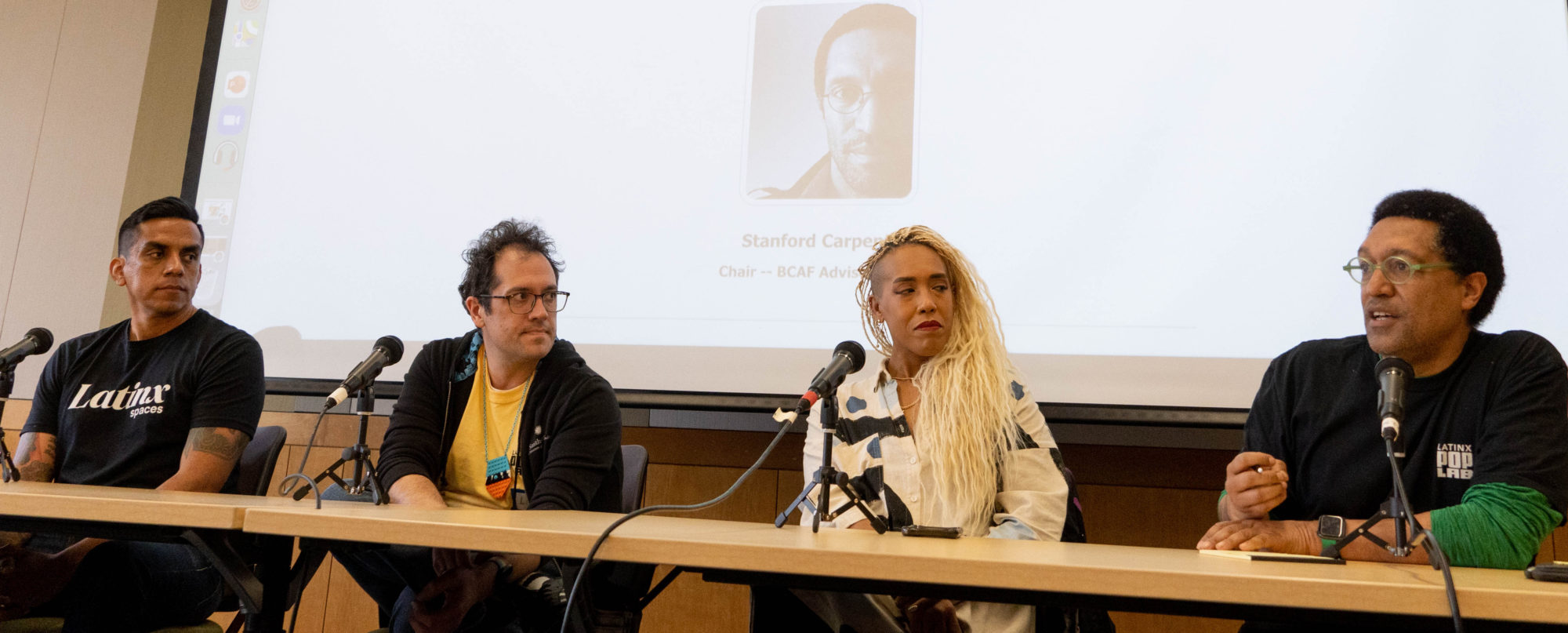
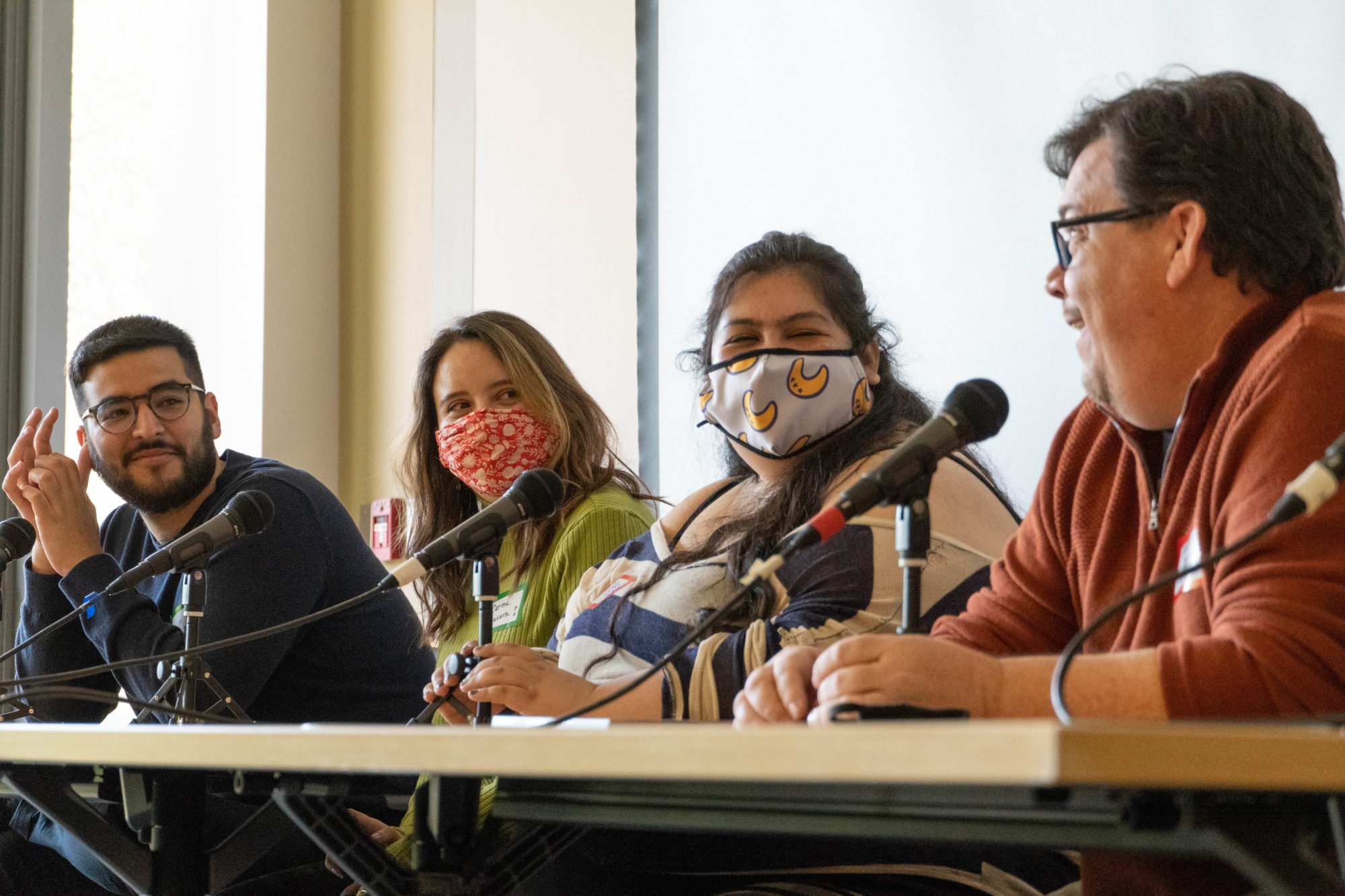
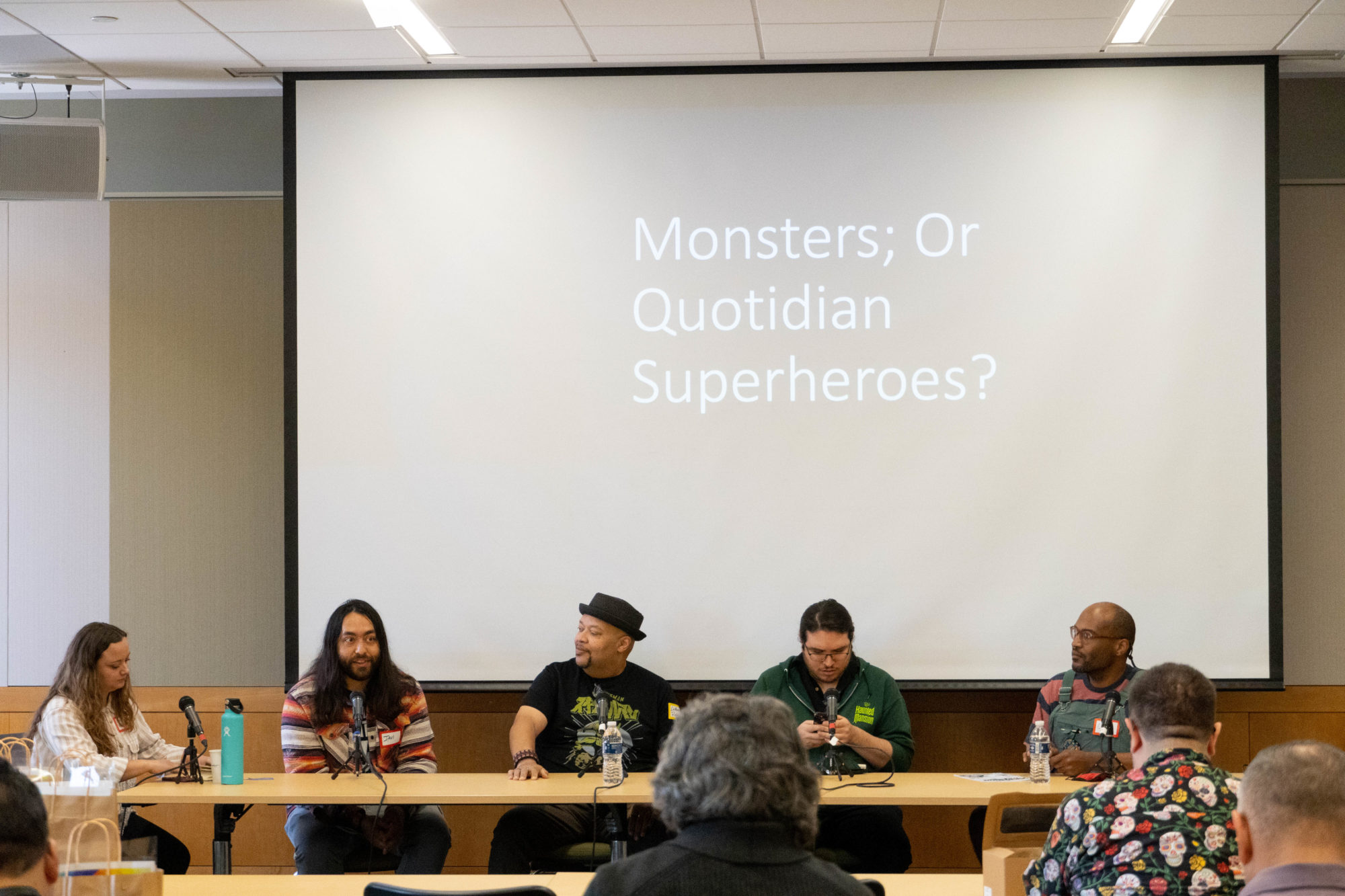
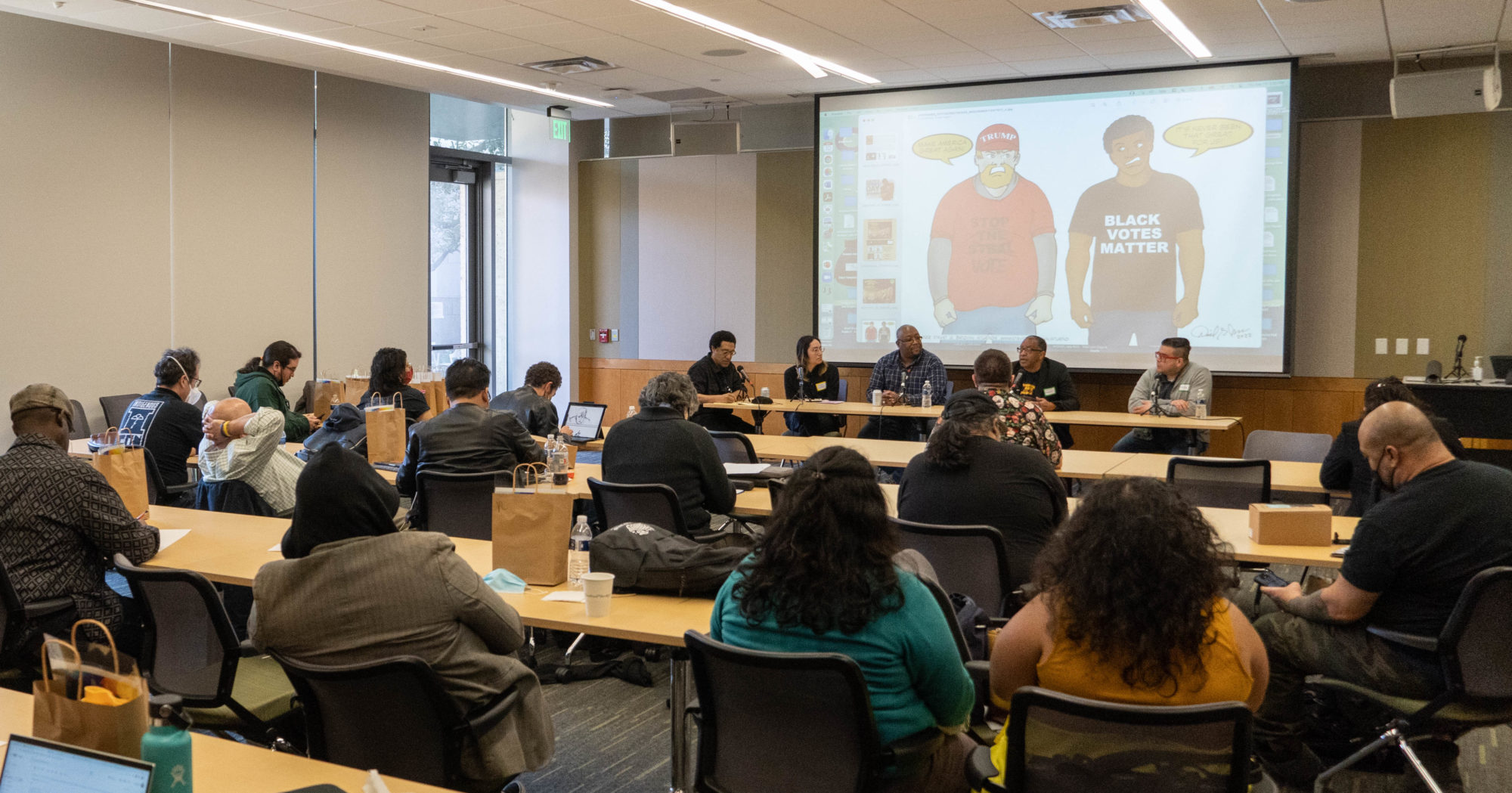
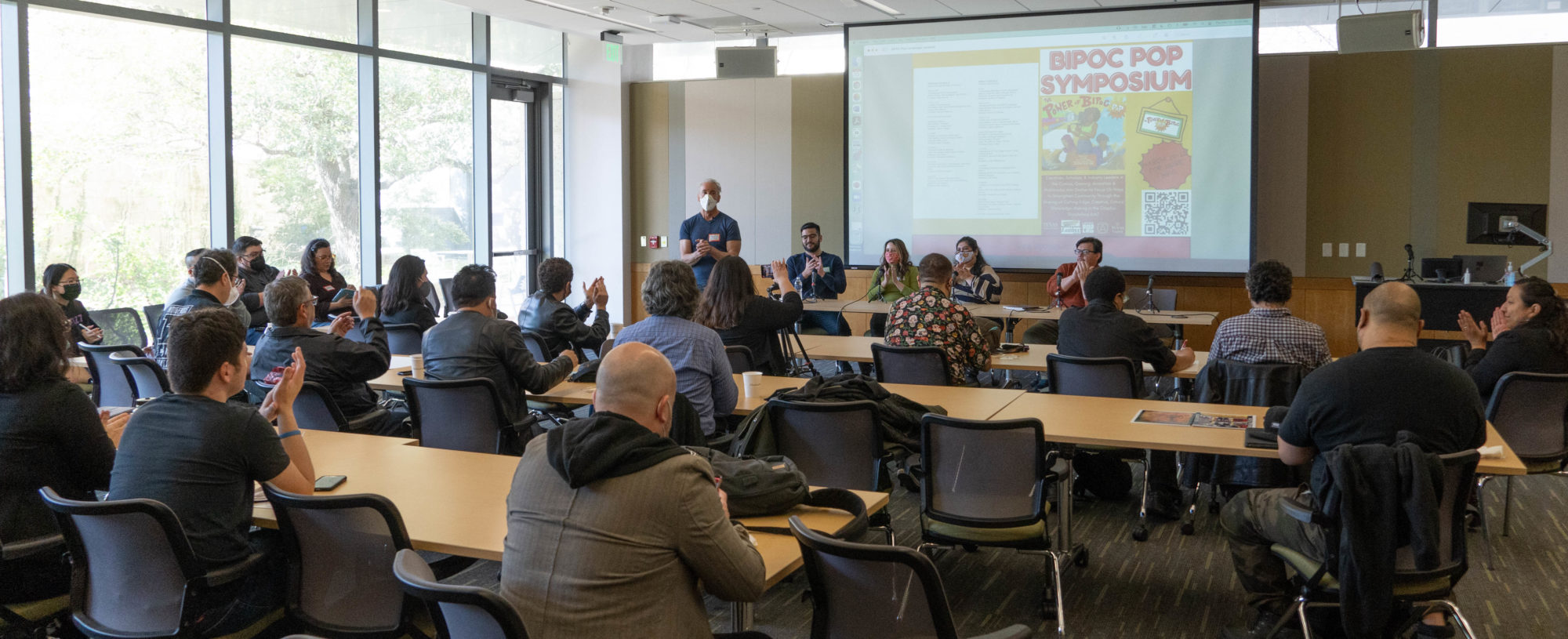
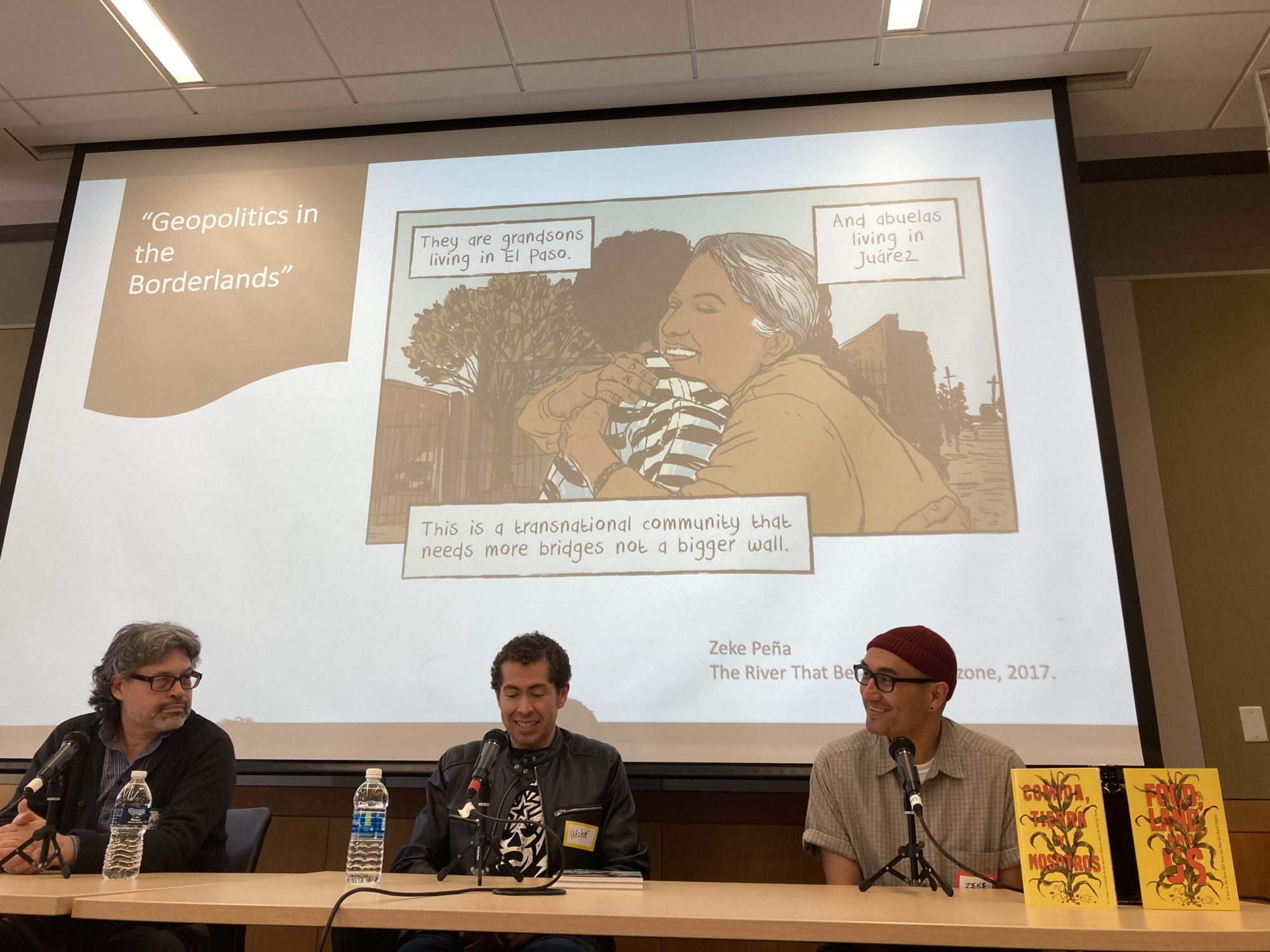
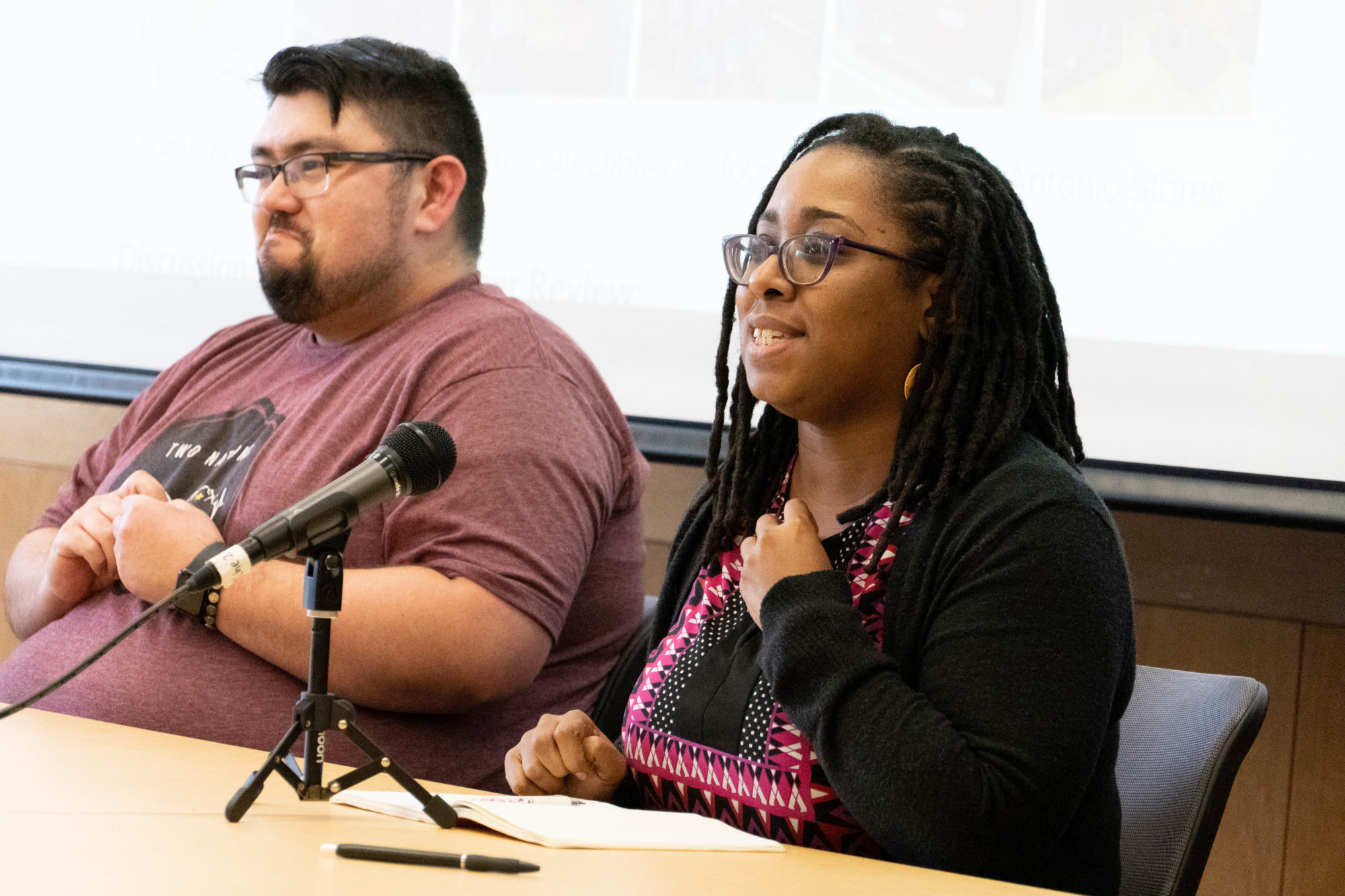
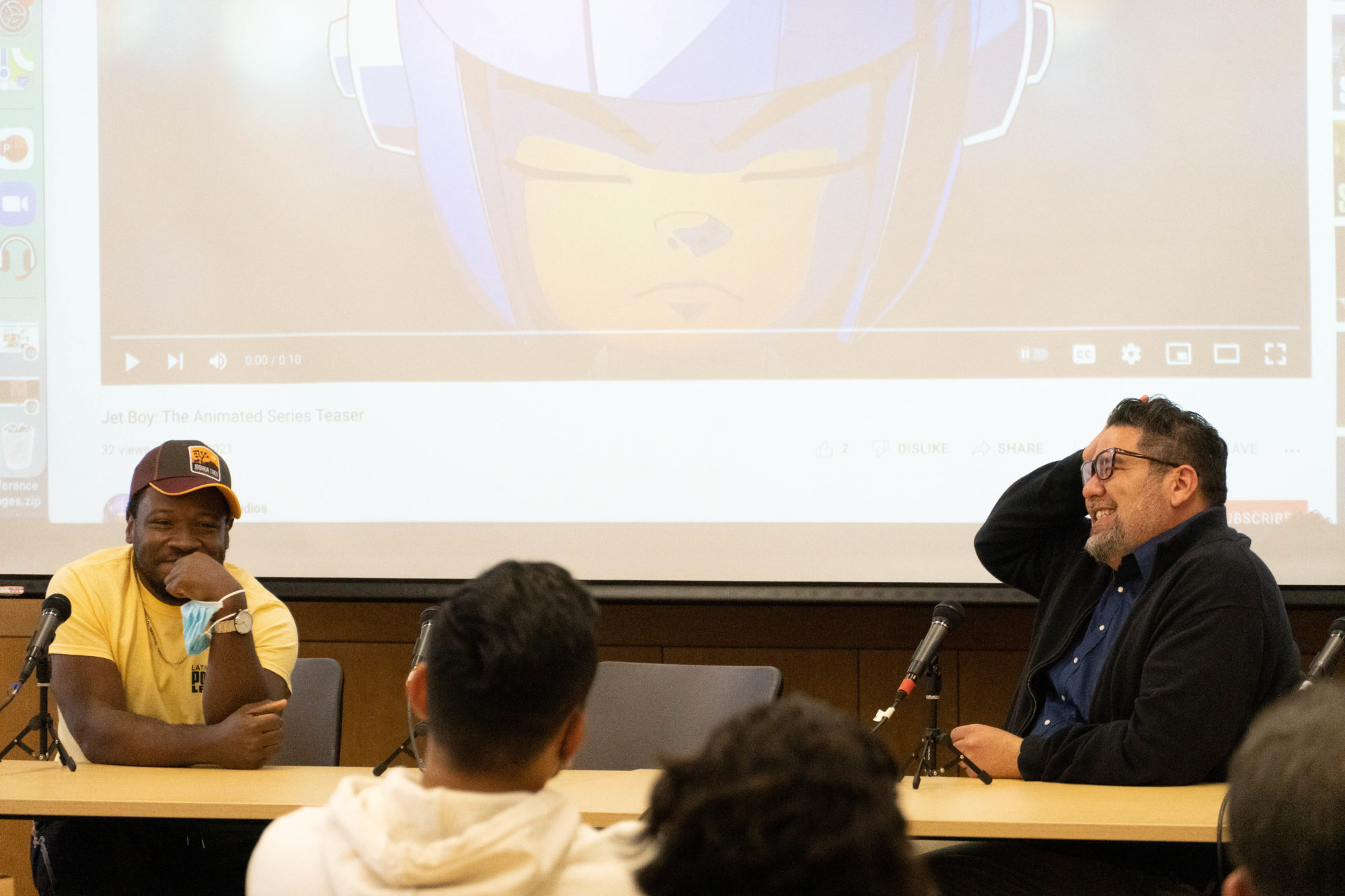
Interactions
The ability to interact not only with other academics, but professionals alike during lunch, in between panels and in the hallways was a pleasure. People were very friendly and open to discussing their work and because panels offered so much rich content and interactions to begin with, the conversations we had and over heard demonstrated Aldama’s and Sosa’s skill at developing and implementing “think space,” where theory and practice were actively mulled over in real time between creators and critics alike.
Marketplace
In addition to panels and luncheons, there was also a marketplace that proved to be enveloping with creators from all over the country and comic/producers/writers/illustrator spaces. Walking through the marketplace, we were able to make connections with creators first hand and learn not only what they have been up to, but what their futures hold. Many spoke of animation projects for streaming platforms, as well as collaborations with other creators to get new works published.
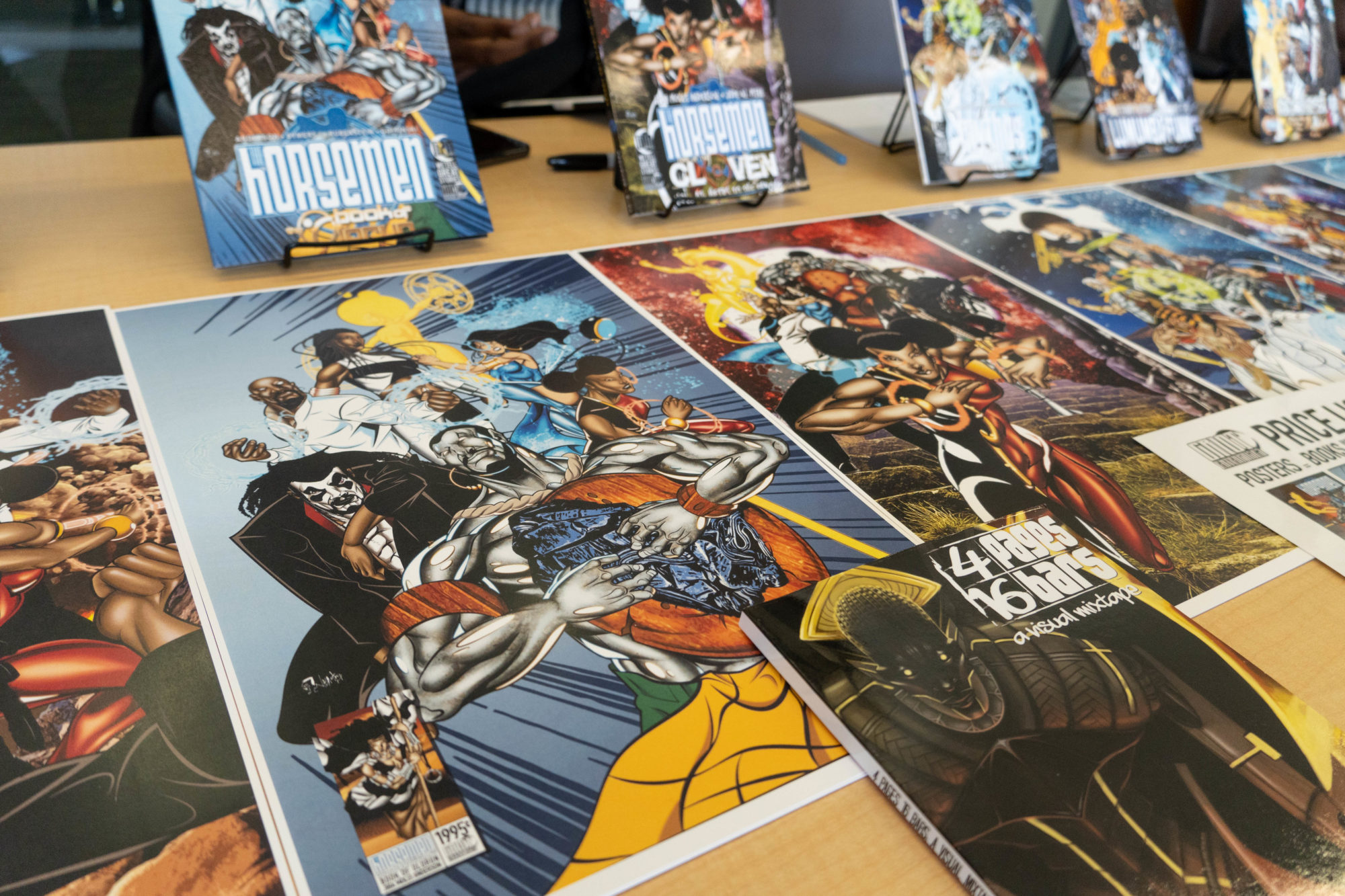
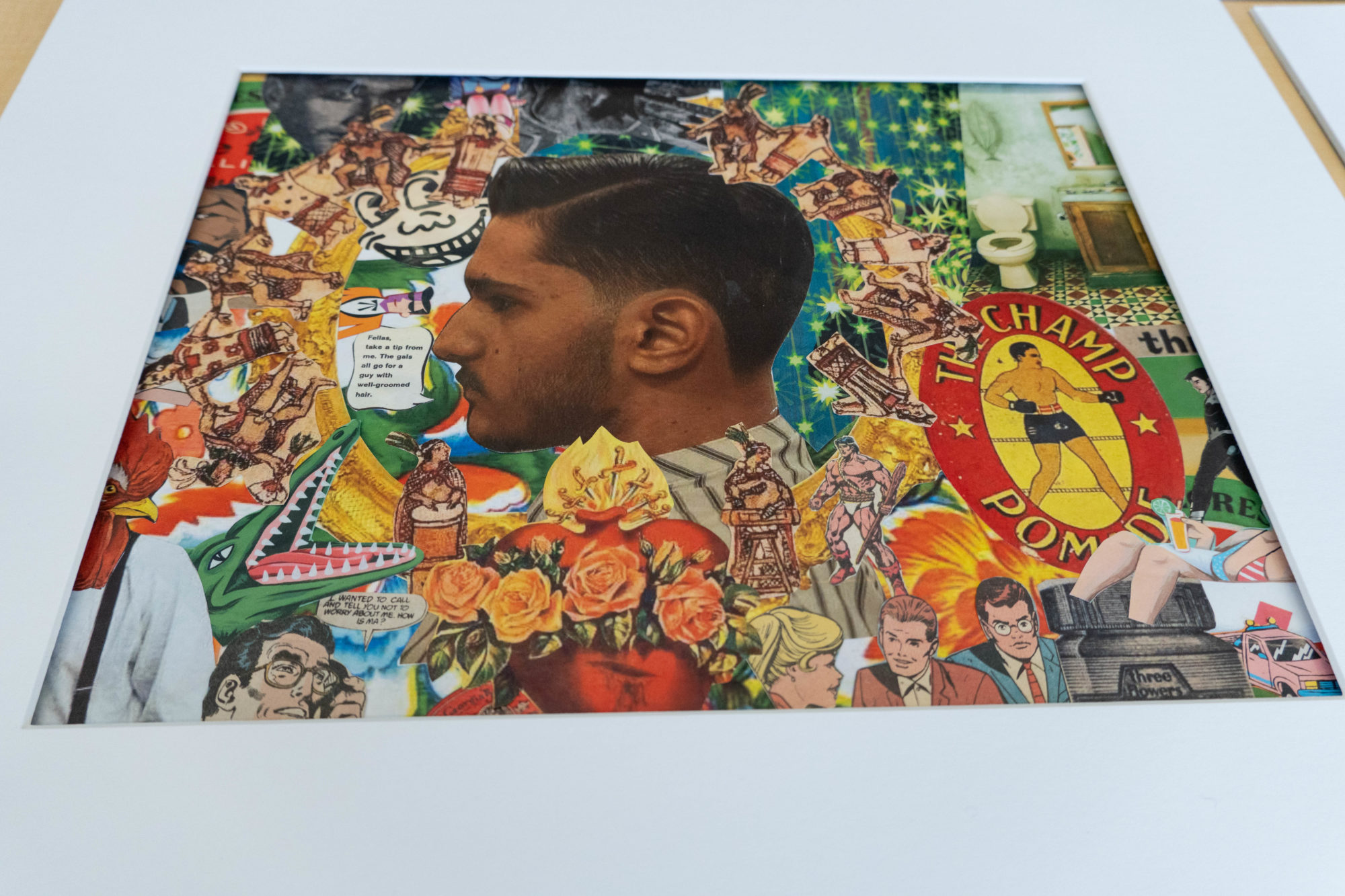
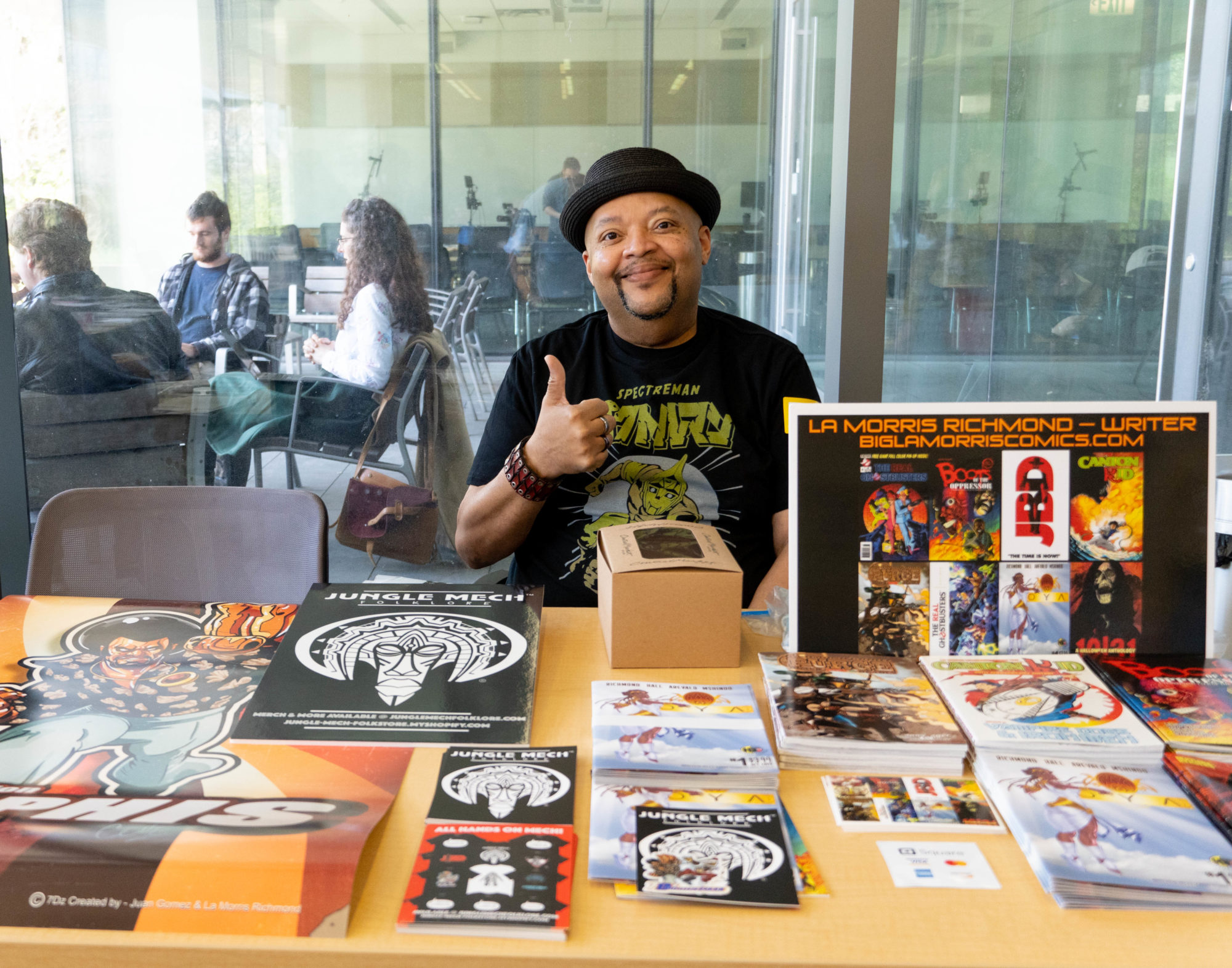
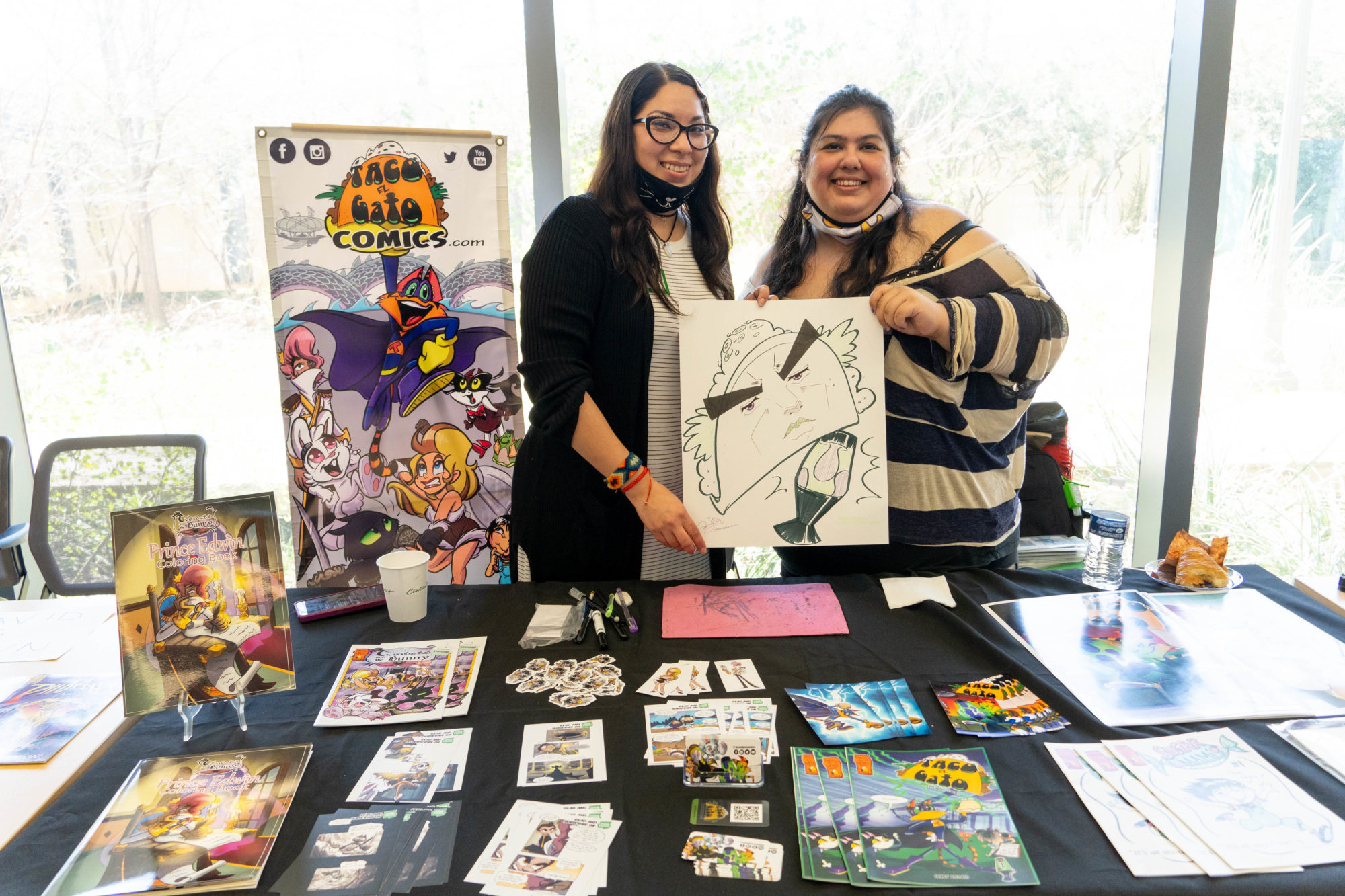
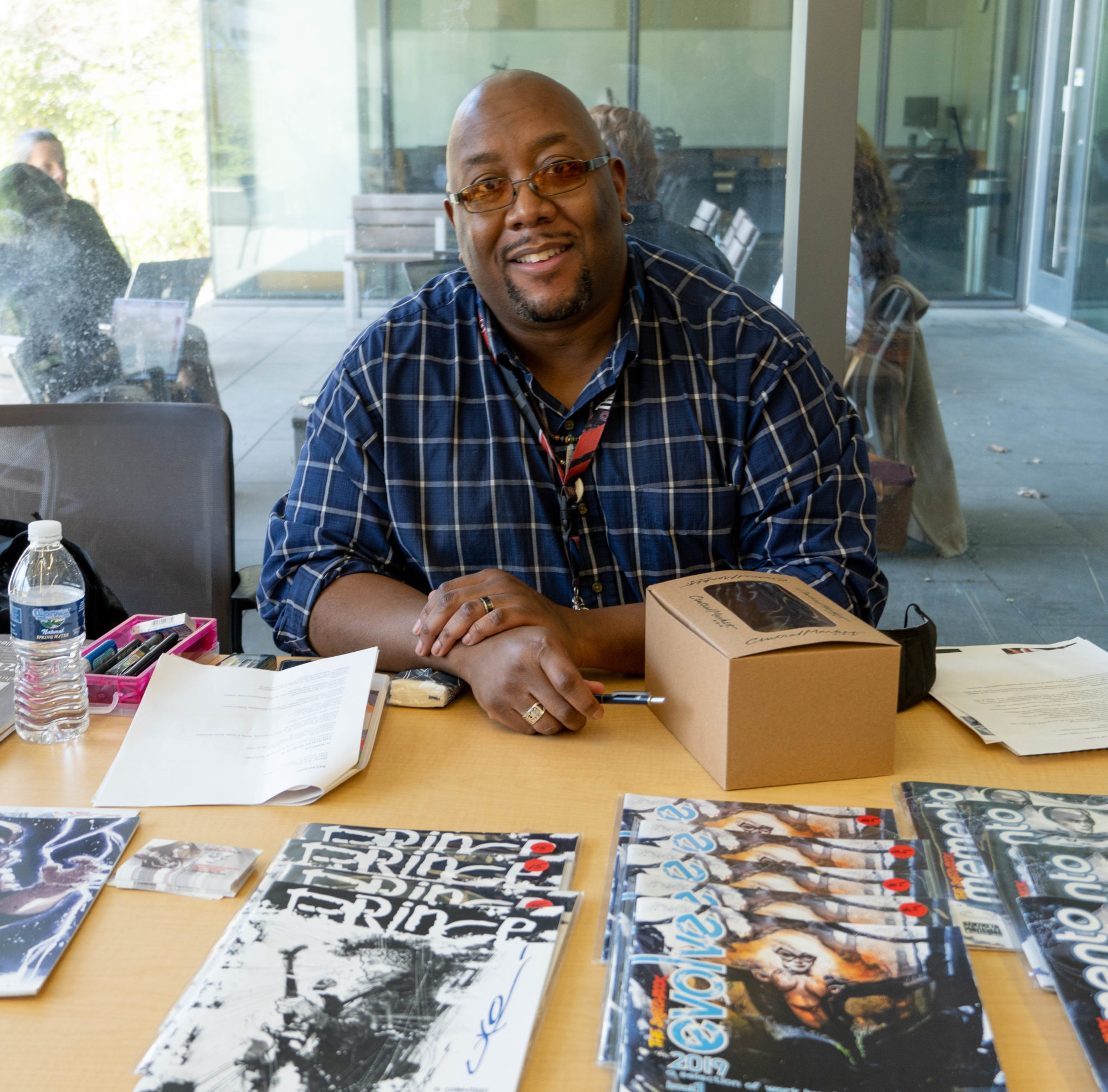
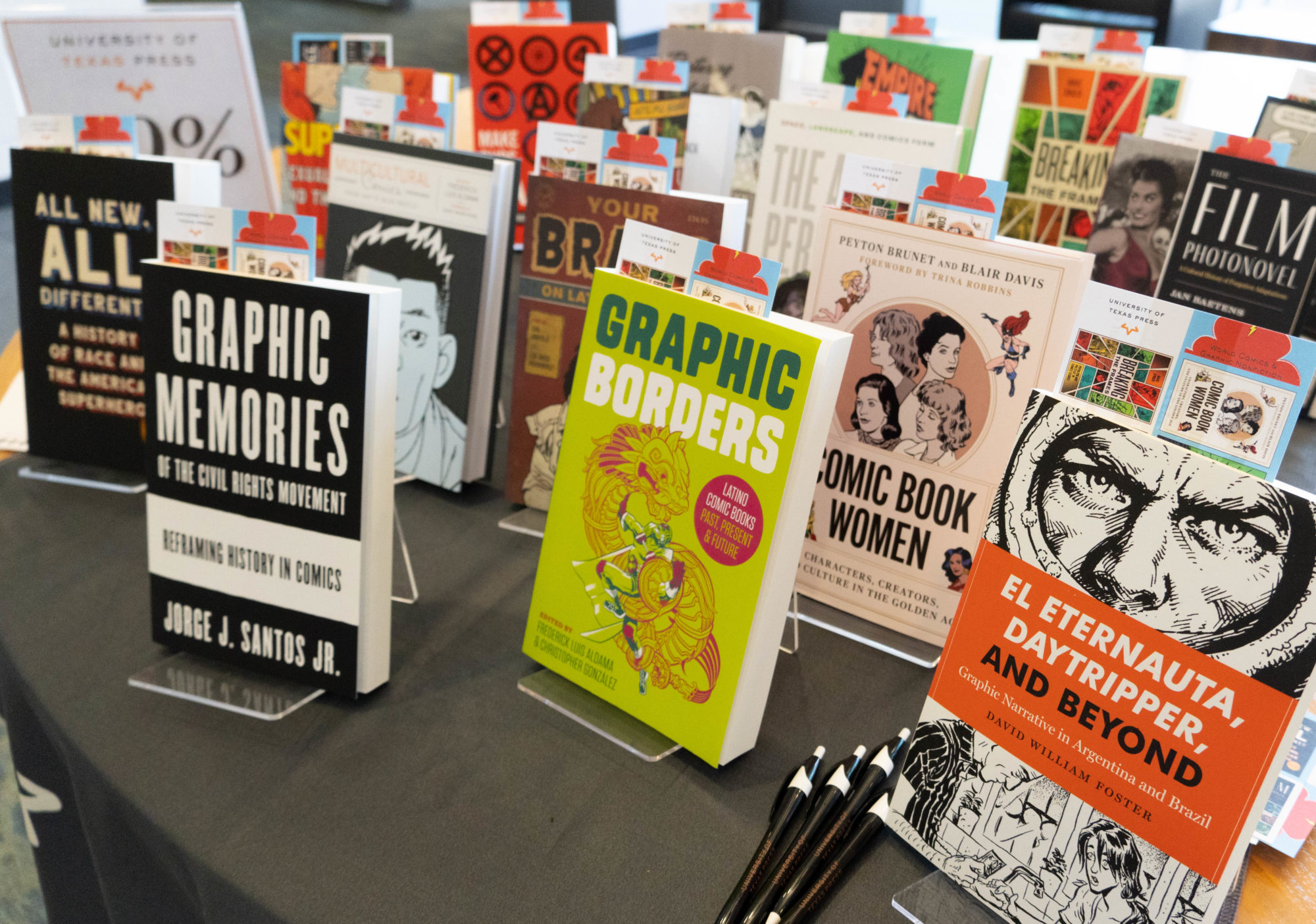
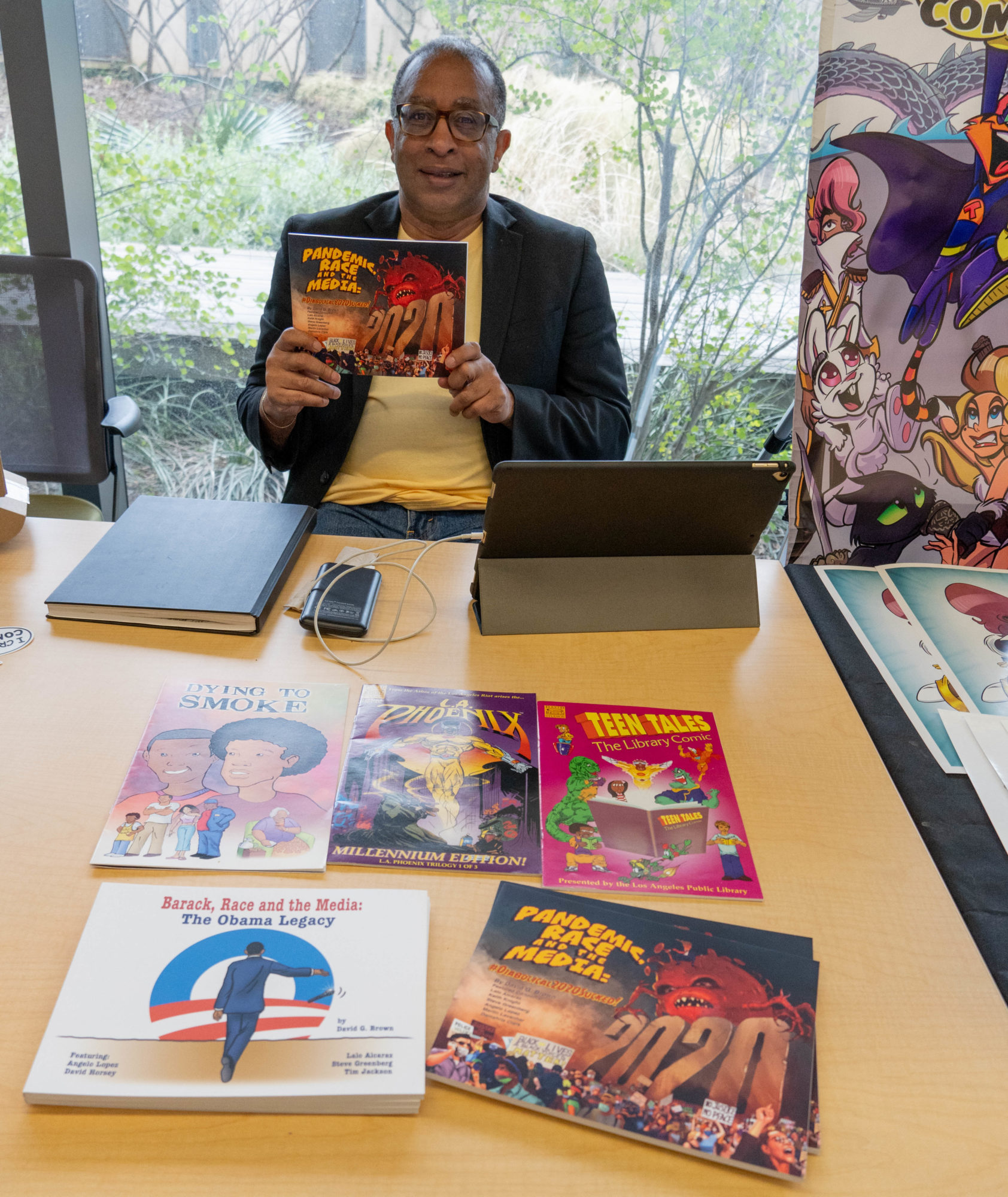
Inspiration/Analysis
You can read our personal reflections at the end of this blog. The two of us were deeply moved by this event and we also found that others were too. So much that joey was compelled to ask Fredrick Luis Aldama if he could record testimonials from attendees. Through this effort we were able to garner over 15 interviews from creators, presenters and organizers. Some major takeaways aside from our reflections are:
- Academia needs more professional style consortiums/symposiums vs paper presentations, especially when exploring mixed media.
- Informal interactions are key to a successful creative meetups, building network, and creating community
- Having a market place at an academic conference (aside from a book/publishing space) help’s build a reflexive opportunity for creators and attendees to connect and get first hand experiences with content while at the event.
- Inviting creatives ranging from independent platforms to full corporate platforms in an equitable manner creates a rounded experience.
- A relaxed environment where people would share their experiences and lived realities.
- A mix of admirations and respect for one another.
Anthony’s Reflection:
There is a part of me that is always awestruck by the idea that I get to study media and popular culture, specifically comic books, for a living. Like that always puts a smile on my face. There is also a part of me that feels that many scholars do not take what I do seriously for that reason too. Comic books have always been seen as “funny books” or a “low culture” medium. Even with the renaissance of comic book media resonating throughout our screens and pages, comic books and their transmedial counterparts are still laughed at by certain audiences and academics.
Thankfully, there are scholars and creators (and members of the generalized audience) who love and support the medium, so much so that conferences and symposiums are being created to highlight such efforts! The most notable examples would be the spaces created by Dr. Fredrick Luis Aldama, who is a highly renowned scholar and creator/founder of the Latinx Pop Lab at the University of Texas. Dr. Aldama is the leading researcher of Latinx representation in popular culture, but specifically comics, and he created two intersectional spaces for academics and creatives to ideate, discuss their work and lived realities, network, that were both made to be diverse and inclusive. The two events are known as the Latinx Creative Consortium, which was held in November of 2021, and most recently the BiPOC Pop Conference.
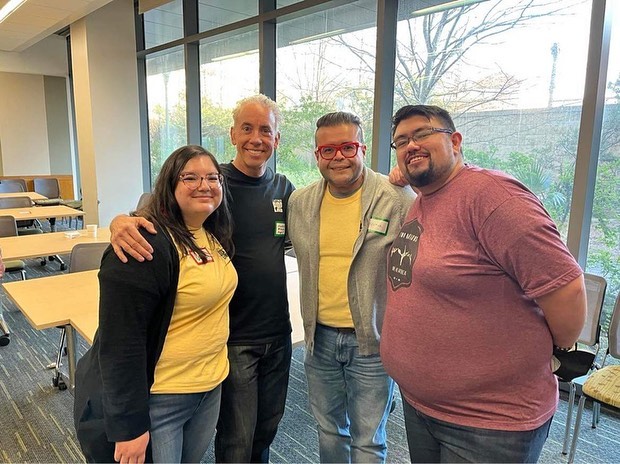
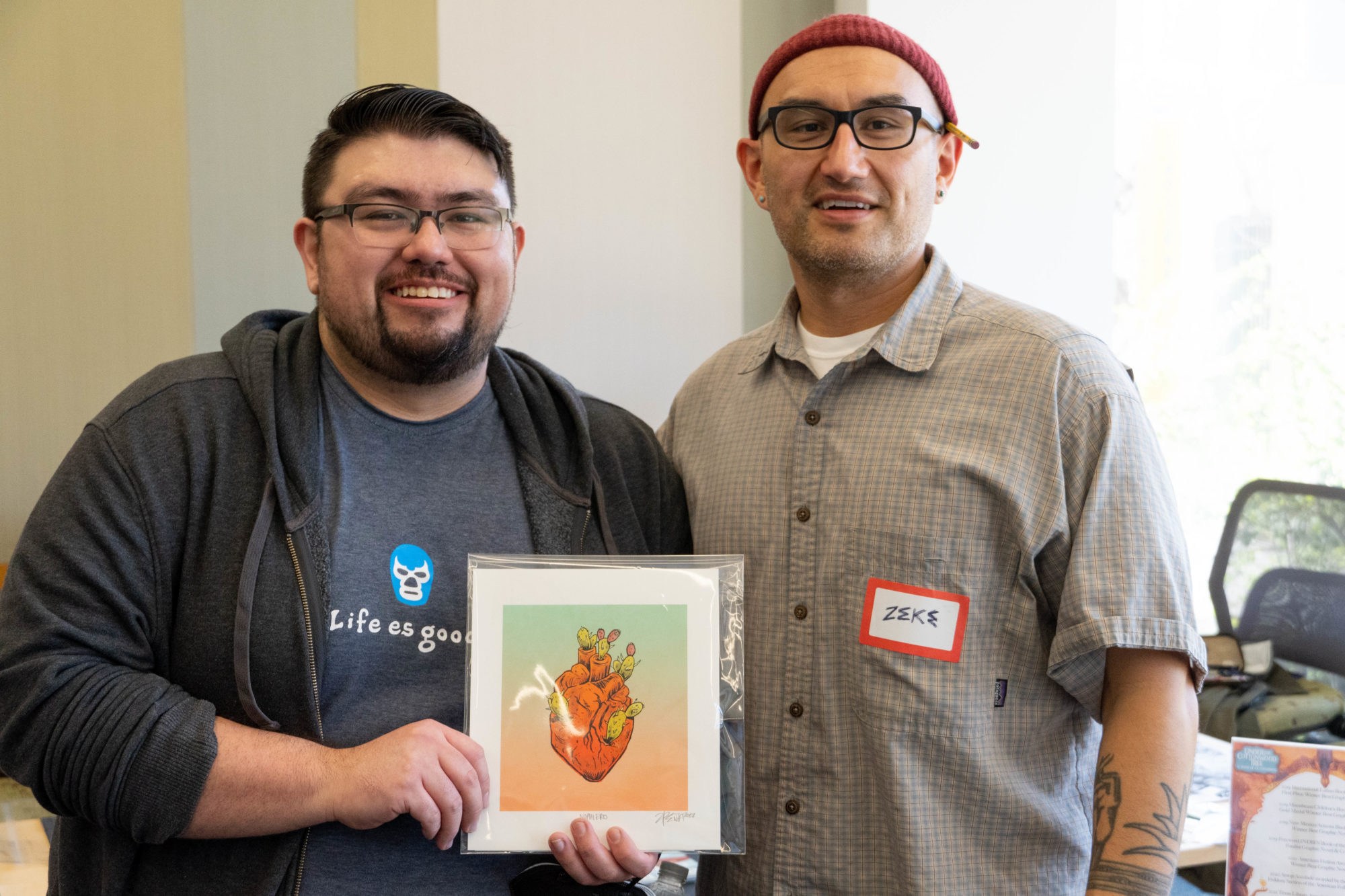
I have been lucky enough to attend both with my friend, mentor, and colleague, Dr. Joseph Lopez aka joey lopez phd. Personally, I have found both events to be a wonderful mix of emotions as I have felt hopeful, inspired, and in a wanted and comfortable space of like minded individuals! I had the chance to meet various Latinx comic creators and Latinx comic scholars, who made me feel welcomed in this space. At the BiPoc Pop conference, two of the comic creators, Hector Gonzalez Rodriguez (El Peso Hero) and Julio Anta (Home), who have written comic books that I’m analyzing for my dissertation, were delighted and honored to be included in my research. I also had the chance to meet an artist who I had been a fan of for a while now, who is also from El Paso, Zeke Peña. Zeke and I had a chance to talk and discuss our love for the borderlands. I had a chance to purchase some prints from him, and he was also kind enough to give me a custom and personalized illustration of his. Muchas gracias, Zeke. 🙏🏼 I also had a chance to speak with Candy Briones from Taco El Gato Comics about her work. We had a really interesting conversation on how 90s Disney cartoons like Darkwing Duck, TaleSpin, Bonkers, Chip and Dale: Rescue Rangers were all influential towards her work today. Candy mentioned that it is a dream of hers to make her work into a video game, which I found so interesting. Like others there at the conference, Candy and I connected on the idea of bigger aspirations, goals, and dreams for ourselves professionally. This was something that was incredibly special to me during this conference as most people would connect, network, and discuss their work so collaboratively. This led to further inspiration all around the conference, as one panel or conversation after another led to someone being inspired or willing to connect with one another inorder to help build the community out even further.
Additionally, I had the chance to be a panel facilitator and a member of a panel discussion. During my time as a panel member, my fellow colleagues and I had the chance to discuss various challenges we have faced during our time in our respective spaces and fields. I openly admitted how I have found it difficult being a minority within my university, department, and within the larger academic world. For me, that has been a difficult space to navigate, but I also admitted that I work even harder to prove to people that I belong here as a scholar, student, and that my research is incredibly important. My admission led me to break down in front of the audience as I openly shed tears upon my reflection. After my panel, many scholars and creators came up to me and let me know that my experience resonated with them as they had similar experiences, and that I wasn’t alone any longer. This moment was special and powerful for me because these were emotions I had been feeling for a while now.
On a more positive note, two people who I definitely have to highlight are Samantha Ceballos-Sosa and Héctor Garza, both of whom are friends and colleagues of mine who conduct research Latinx representation in comic books. The three of us stay connected and have begun to ideate ways to create a collective of diverse Latinx scholars conducting work on comic books and graphics novels. I am extremely grateful for these two individuals as they are both passionate scholars who are humble kind-hearted people! I’m thankful to call them both friends.
Overall, my experience at these events has been inspiring and eye-opening for me. I am filled with so much appreciation, joy, and hope by such a space. Thank you again, Dr. Aldama, Sam Ceballos-Sosa, and the other organizers of these events for making these diverse and inclusive spaces. Thank you to joey lopez, phd for always being down to join me on these adventures and encouraging me along the way to keep going. I will now use this positive energy to continue working on my dissertation in order to finish this part of my journey to become Dr. Anthony Ramirez.
I also want to acknowledge and thank my co-advisors Dr. Srivi Ramasubramanian and Dr. Antonio La Pastina, dissertation committee members Dr. Robin Means Coleman and Dr. Juan Alonzo; professors of mine from UTEP Dr. Stacy Sowards and Dr. Roberto Avant-Mier. These amazing mentors of mine have encouraged me to pursue my dreams and truly geek out by writing scholarship on comic books. You all have no idea how appreciative and grateful I am for you all. As a child, reading comic books and watching cartoons, I never would have imagined this hobby and passion of mine would open so many doors for me.
joey’s Reflection:
The UT Austin, LatinX Poplab recently put on the BIPOC POC Symposium. I had the pleasure of attending. And I will say it was a game changer for me. It was very powerful. I hadn’t felt the energy of being on the ground floor of something since, well the last event we cohosted with the LatinX Poplab in the fall.
I went with my colleague Ph.D. Candidate Anthony Ramirez. On the first day we drove together and let me just say the conversations we had were like therapy, I hadn’t really had time to reflect on my experiences at A&M and all the overhead we put in as Latino’s on campus. We also reflected on academia in general and the challenges such as getting jobs, publishing, pushing new forms of publishing. It honestly took me back to my graduate school days of jamming with my mentors Sandy and colleagues like Brandon.
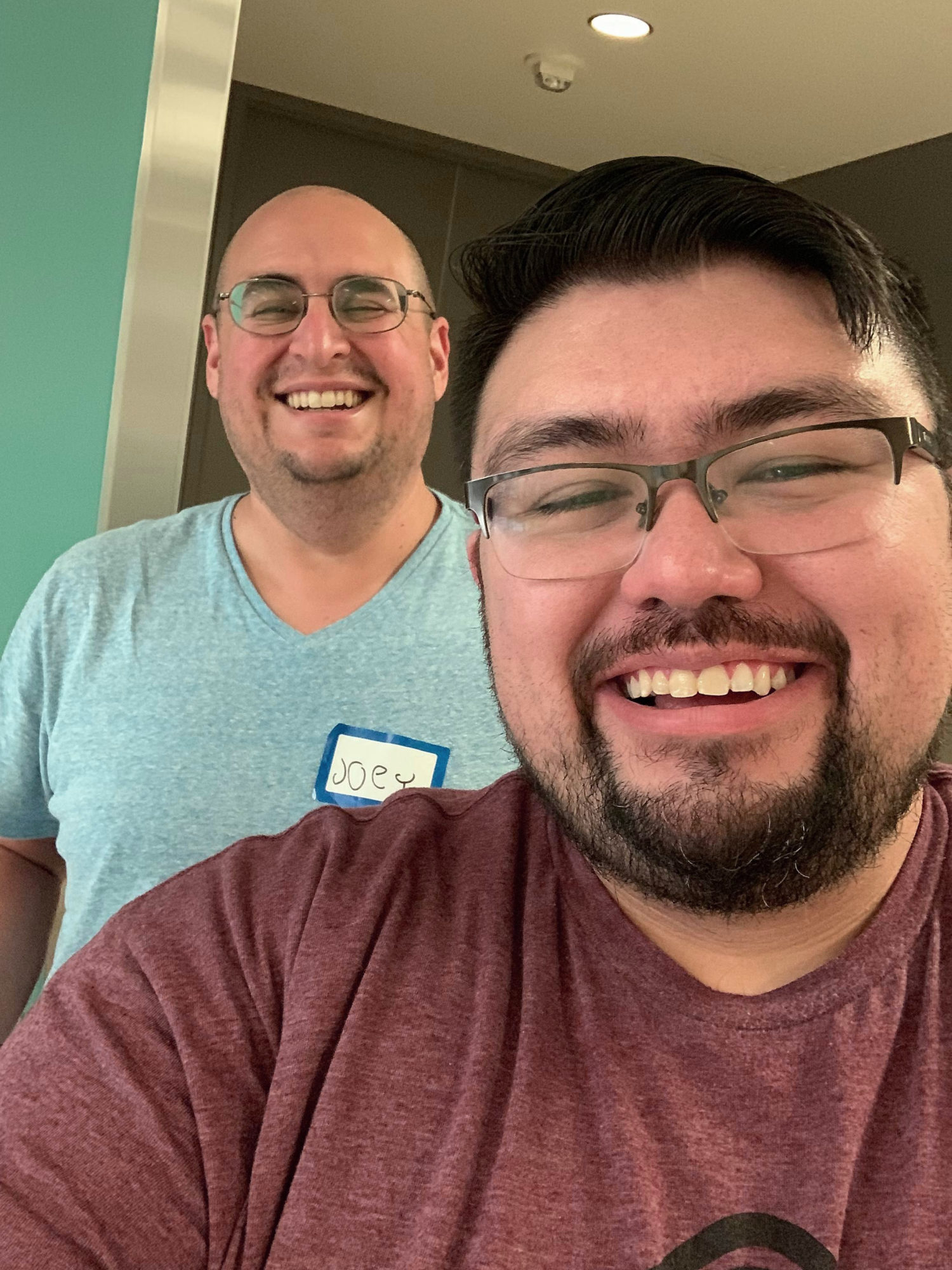
The conference itself was truly transformative for me as well because I hadn’t been to such a power event where I wasn’t charged with any tasks. The theme was LatinX and comics, while
I teach popular culture, I am no comics theorist or practitioner myself.
So as the workaholic I am, I took a camera and self assigned to be a documenter. What I didn’t expect was to encounter so many kind people who were ready to engage in deep meaningful conversations. I mean usually I talk to 5-10 people at a conference. Pretty much every single person I met was ready to just have fun frank discussions.
There was also a artists market. If people know anything about me, they know I am a shopper of artifacts and cultural meaning. I worked that room booth by booth and bought something from almost everyone there (some were not present or some art wasn’t for sale). But beyond the purchasing it was the conversations with each artist that was just truly amazing.
And that’s it, it was the conversations, they reprogrammed me in a way that hadn’t happened in years. It woke me back up to many of my callings as an academic, human being and advocate for helping others.
What do I mean by this. Well the conference and the drive with Anthony made me realize how much I have suppressed my personality as a LatinX to fit in with the students I teach and colleagues I work with at A&M. It made me realize how much I had institutionalized myself as an academic and someone who really believes in the multimodal documentation of lived realities of all cultures in an equitable way. Translation: I realized how much I have suppressed my own loved experiences on the Campus of A&M in order to make others more comfortable with me being there and not be a “nuisance.”
That reflection along with the awesome powerful support of so many was great and something I hope to use to create more meaningful engagements at A&M and with my work and collaborations in general.
I cannot thank everyone who engaged with me at the conference. Usually I would list names, but I want to make a point that it literally was everyone who made up the space that was BIPOC POP Symposium 2022.
The Full List of Individuals at BiPOC Pop!
